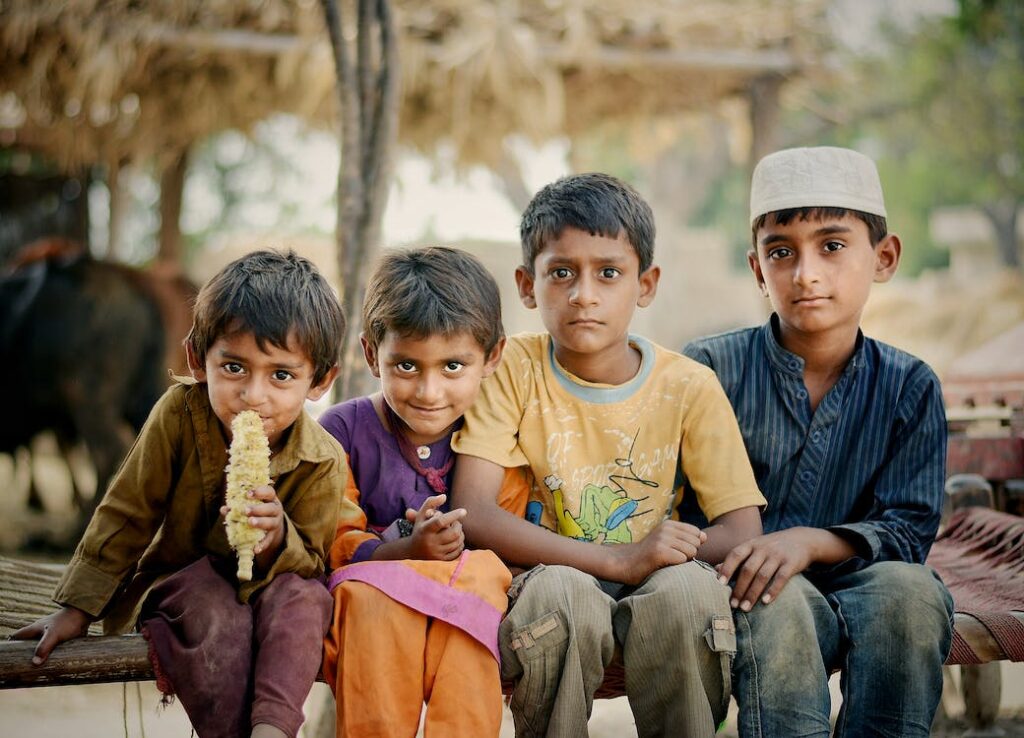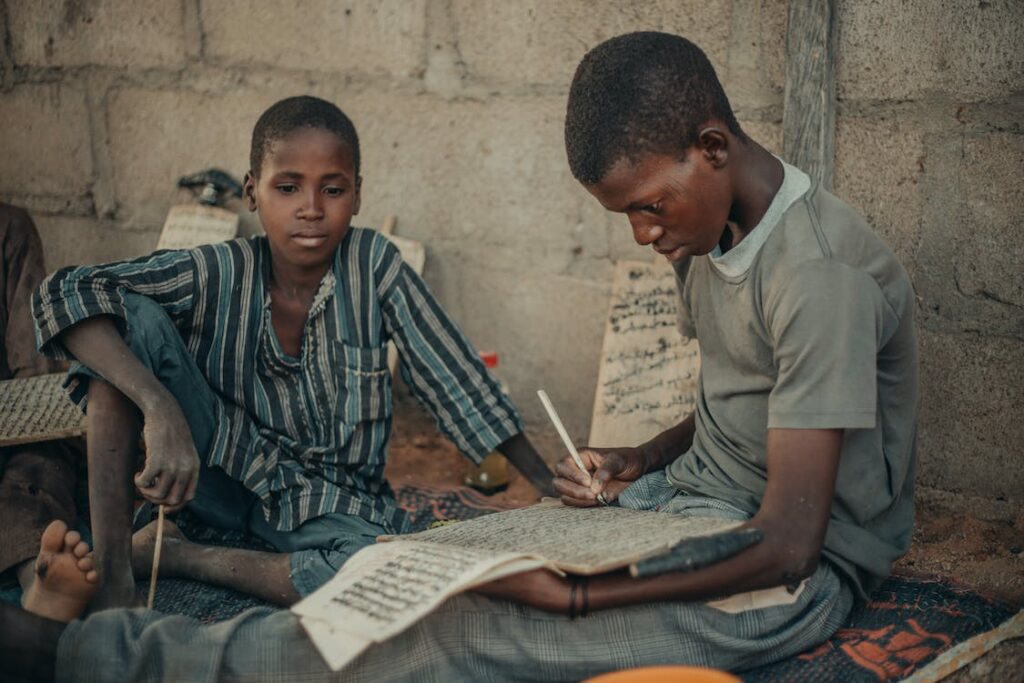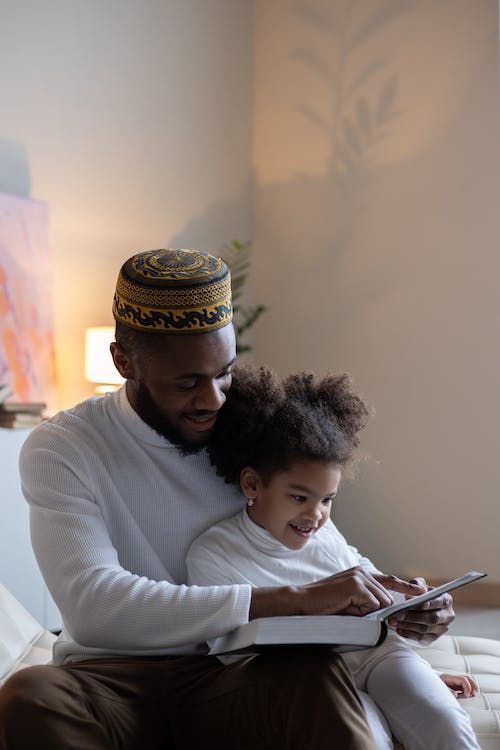
Preface
In fact, this article was originally part of a training course entitled (Tutors and instilling of values). It took me years to collect and prepare this article by the will of Allah. I benefited a lot from the feedback reports of many programs because that program was carried out in different places and for various categories in many ways. After each program, I took many benefits from the trainees, which gave support to the level of the subject that resulted from the exchanging ideas, discussions, and workshops, with strict attention to match the article with the Shari`ah rulings.
Indispensable Introduction
Our crisis is an educational crisis:
The Prophet (peace be upon him) came to the Arabs, who were living in a very dark period, absolute ignorance, and inclusive deterioration in all walks of life. Nations did not care about them and they did not have a strong power to lean against. Al-Mughirah ibn Shu`bah (may Allah be pleased with him) described them to (Yazdagard) saying: There was no nation worse than us. As for our hungry, it was unlike any hunger you knew. We used to eat beetles, scarabs, scorpions, and snakes; that was our food. As for houses, we used to sleep on the ground and we did not wear but what we stringed from the fur of camels and sheep. Our religion was to kill one another, to oppress one another, and we used to bury our daughters alive because we hated that they share us our food. [Al-Bidayah wa An-Nihayah —Ibn Kathir— (Vol. 7 / p. 49)].

Those were their conditions before the mission of the Prophet (peace be upon him).
After the Arabs had extracted from the prophet (peace be upon him) and were raised on his Sunnah, their conditions changed and things turned upside down. Illiteracy was changed into a school for spreading knowledge all over the world in various fields, barbarism disappeared in the cloak of nobility and generosity and lofty morality, their poverty turned into richness, their fear into security, their humiliation into honor, and people entered in the religion of Allah in masses. The Arab became the masters of the world for a while until knowledge was lost and the religion became weak in the heart of the people, then Muslims were dominated by weakness and became like the foam of the sea.
Thawban, the freed slave of the Messenger of Allah (peace be upon him), narrated that the Messenger of Allah (peace be upon him): “The people will soon summon one another to attack you as people when eating invite others to share their dish. Someone asked: Will that be because of our small numbers at that time? He replied: No, you will be numerous at that time: but you will be scum and rubbish like that carried down by a torrent, and Allah will take fear of you from the breasts of your enemy and last enervation into your hearts. Someone asked: What is wahn (enervation). Messenger of Allah (peace be upon him): He replied: Love of the world and dislike of death.” [Musnad Imam Ahmad — (Vol. 45 / p. 378)].
The state of negligence that the nation suffers is a result of an educational crisis of Muslims who did not apply Islam in their lives. Therefore, Allah humiliated them after glory and replaced their power with weakness, and replaced their progress with deterioration. The conditions and the state of this nation will not be good until they do as the former Muslims did. Hence, we know that the only solution for our social, economic, scientific, cultural, medical crises which the whole nation experiences is to bring the Muslims back to their Lord, to His Shari`ah, and to the pure source to learn from and to apply its teachings. It is not as the modernists, who led the nation for decades, claim that panting behind the West and following their footsteps will bring back our lost glory. What did the nation benefit from the West except more corruption and weakness? The Prophet (peace be upon him) said: “The evil people of this nation will follow the footsteps of the people who were before them, the People of the Scriptures, step by step.” [Musnad Ahmad – (Vol. 34 / p. 499).]

The Features of the Islamic upbringing system:
The man-made upbringing systems diverse between excessive idealism and materialism. As for the Islamic upbringing system, it is a compromise between both systems. Islam draws an ideal upbringing picture for Muslims represented in (the two sources of Revelations). It also gives them applied examples from the lifetime and the situations of the Prophet (peace be upon him) as well as the era of the Four Guided Caliphates. It treats the people according to their abilities as the Prophet (peace be upon him) said: “Leave me as I leave you, for the people who were before you were ruined because of their questions and their differences over their prophets. So, if I forbid you to do something, then keep away from it. And if I order you to do something, then do of it as much as you can.” [Sahih Al-Bukhari – (Vol. 22 / p. 255)]. Thus, the retribution on the Day of the Recompense will be measured by the amount of good deeds and the amount of bad deeds; not by the number of each deed.
Based upon the above mentioned, the duty of tutors is to remind the people of what they should do, and do not burden them beyond their capacities. They have to remind them of that unique generation and ideal society about which the Prophet (peace be upon him) said: “The people of my generation are the best, then those who follow them.” [Sahih Al-Bukhari – (Vol. 9, p. 133)].
Tutors should give much consideration to their bitter reality and the difficult time in which they live. The Prophet (peace be upon him) said about this time: “It will come a time on the people in which the one who observes patience regarding his religion will be like a person who grabs a burning coal.” [Sunan At-Tirmidhy – (Vol. 8 / p. 215)].
It was also reported in Al-Mu`JAM Al-Kabir of Imam At-Tabarany [vol. 16 / p. 92] the following Hadith: “You shall witness the days of patience during which the one who observes patience regarding his religion will be like the one who grabs hot coals. The one who does a (righteous) deed in that time shall have the reward of fifty men.” It was said: O Messenger of Allah, the reward of fifty men of us or from them? He said: “He shall have the reward of fifty men of you.”
The Islamic upbringing system considers the human nature that Allah placed inside him. A person has a clay (material) nature that grabs him to the earth and its desires and a spiritual nature that attracts him to the sky. He is a weak creature, sometimes he is overcome by desires and sometimes he overcomes his desires; and between this and that he is asked to control his natural incentives, not to suppress them. In light of these postulates, we can deal with the tutors with a realistic vision that appreciates the human weakness and elevate him from the worldly desires.

Important terms:
Today, the community that was dominated by the Western culture live a chaos of terminology. This chaos is a prominent feature of the western system. Robinson said: People can create Marxist theories as they want. [The Islamic culture of Az-Zanidy – unprinted Lectures, p. 29]. Therefore, we should give much care to the terminologies that we shall discuss in this issue and agree on a clear definition for them without going into delicate academic details that do not achieve the goal that we aim to. We also shall discard any dispute that has any connection with the definition of a term contrary to what we want.
Upbringing and Tutors:
The meaning of upbringing is any effort that aims to promote the human nature to perfection. Every person has a certain perfection which he seeks and tries to reach. The meaning of a tutor is the one who tutor himself as well as others.
Values:
The term (values) was neither known to our ancestors nor used; the first one who mentioned that term was the Greek philosophers then it was transmitted to the Muslims and then to the West. Since this term imposed itself in the educational and social arena, it is necessary to address the people with things they know.
So, we used it here in the way we see appropriate which is: the principles and the measures that controls the human life. According to Muslims, values are derived from the Divine Source, therefore, they are fixed and unchanged. As for the West, values are subordinates to their own whims and goals; they are not fixed. Thus, the things that the community regards as values will be so, therefore, the Western community is now leading a double crisis in values (learning and application).

We can classify values in different ways, perhaps the most beautiful, sorting them according to their impact on the components of the human personality, so values of three types:
1 – The values of Truth: They are the standards that govern the intellectual human life, and the most important are beliefs.
2 – The values of Good: They are the standards that govern the behavioral human lives, such as dreams and honesty.
3 – The values of Beauty: They are the standards that govern the emotional human life, such as approval, and beauty.
Convictions:
They are principle, opinion, direction, or inclination that affects the human life and his responses to external stimuli. They are formed after passing by certain experiences or continuous intellectual speculations. Conviction is lesser than value from two sides:
1- It is steady.
2- It is agreed upon by society members. Many of these convictions are practical interpretation for values.
For Example, hospitality is a value and the way of hospitality is a conviction that varies from a person to another. Many of these convictions are formed under the influence of the surrounding environment of the human beings, regardless its quality.

Jazakom Allah khir
May Allah protect our kids